5 surprising triggers of insomnia
Stress and your diet are two possible causes of sleepless nights.
Updated on September 8, 2024
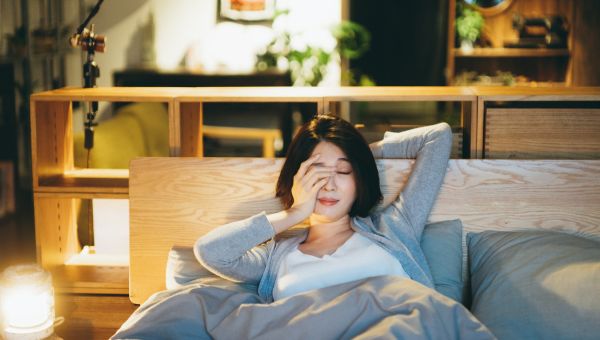
If you can’t seem to fall asleep at night, and not even counting sheep helps, you might have insomnia. Insomnia makes falling asleep, staying asleep, or both, a challenge. The issue can be acute—meaning it lasts only a few days or weeks—or chronic, meaning it lasts for at least one month. Most cases of chronic insomnia are the result of an underlying health condition,… Show More
If you can’t seem to fall asleep at night, and not even counting sheep helps, you might have insomnia. Insomnia makes falling asleep, staying asleep, or both, a challenge. The issue can be acute—meaning it lasts only a few days or weeks—or chronic, meaning it lasts for at least one month. Most cases of chronic insomnia are the result of an underlying health condition, medication side effect, or other sleep disorder. Acute insomnia tends to be brought on by specific events, such as stress at home or work.
If you spend hours each night tossing and turning, sleep for only short periods, wake up too early, or wake up feeling like you didn’t sleep, talk to your healthcare provider (HCP). Insomnia can be treated with medication, but changing some of your everyday habits, like the foods you eat and your bedtime routine, can be effective, too. Find out five common triggers of insomnia and get to the bottom of your sleepless nights.
Show Less
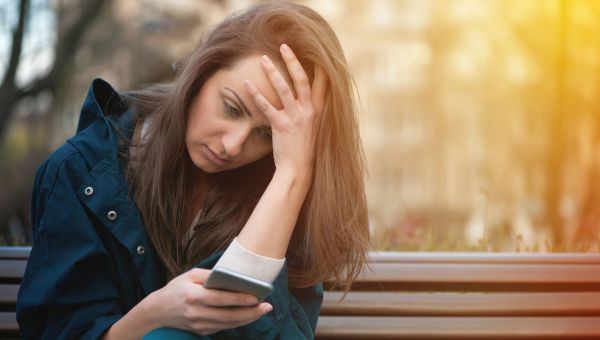
Stress and anxiety
The relationship between anxiety and insomnia is a two-way street. Feelings of worry can keep you up at night, triggering insomnia. Sleep deprivation resulting from insomnia can, in turn, spark anxiety.
Results from a 2022 statistical study published in the Journal of Psychiatric Research suggested… Show More
The relationship between anxiety and insomnia is a two-way street. Feelings of worry can keep you up at night, triggering insomnia. Sleep deprivation resulting from insomnia can, in turn, spark anxiety.
Results from a 2022 statistical study published in the Journal of Psychiatric Research suggested that people genetically predisposed to insomnia were more likely to develop anxiety as a result. A review published in the Journal of Sleep Research that same year confirmed that there is evidence for insomnia being a risk factor for developing anxiety conditions.
If you have a hard time falling asleep after a stressful day, you’re not alone. Stress—whether brought on by stress at work, grief, or major life events—can make falling asleep and staying asleep difficult. According to the National Institutes of Health (NIH), worrying or feeling stressed about work, relationships, finances, school, or a major life event can raise your risk of insomnia. And when you can’t sleep because of worries and then start worrying about not getting enough sleep, you can worsen the insomnia.
If you’re living with overwhelming stress, anxiety, or insomnia, treating one of these issues may lessen the burden of the others. Severe anxiety may be treated with therapy and medication. Certain lifestyle changes can also help. A healthy diet, getting regular physical activity, yoga, meditation, and deep breathing can help ease stress and anxiety and boost sleep quality.
Adopting a healthier lifestyle doesn’t have to be a chore. Start with simple changes; try building habits that take one minute or less to implement.
Show Less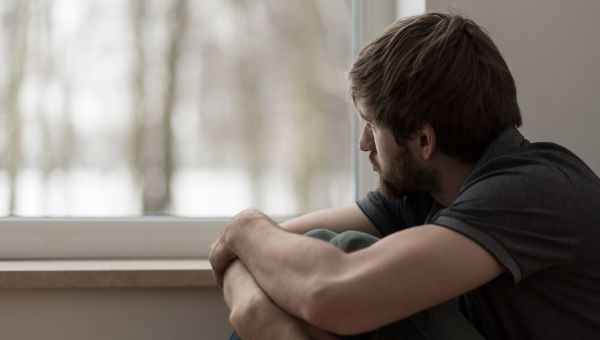
Depression
It’s common to feel down at times, but depression is something more serious, and it can disrupt your usual sleep pattern. In fact, about 80 to 90 percent of people diagnosed with depression also experience insomnia.
That’s not the only connection between the two conditions. According to a… Show More
It’s common to feel down at times, but depression is something more serious, and it can disrupt your usual sleep pattern. In fact, about 80 to 90 percent of people diagnosed with depression also experience insomnia.
That’s not the only connection between the two conditions. According to a 2023 review in the American Journal of Psychiatry, having insomnia doubles your risk of developing depression.
If you’ve been prescribed treatment for depression, like medication or therapy, stick to your treatment plan. You can also help ease depression symptoms and improve sleep quality by avoiding alcohol. Consider keeping a journal as a way of logging and expressing feelings of anger, fear, or pain. You might also consider joining an online community that offers support, encouragement, and strategies for those coping with depression.
Show Less
Diet
What you eat and drink throughout the day can have an effect on the quality of your slumber. Caffeine is a stimulant, which can disrupt your sleep if consumed too close to bedtime. Remember that caffeine isn’t only found in coffee and tea. For quality shuteye, avoid chocolate and coffee- or… Show More
What you eat and drink throughout the day can have an effect on the quality of your slumber. Caffeine is a stimulant, which can disrupt your sleep if consumed too close to bedtime. Remember that caffeine isn’t only found in coffee and tea. For quality shuteye, avoid chocolate and coffee- or chocolate-flavored foods like ice cream before bed.
A 2023 systematic review of 24 studies, published in the journal Sleep Medicine Reviews, found that caffeine can reduce the total time you sleep, as well as raise the amount of light sleep and lower the amount of deep sleep you get.
So, what’s the latest in the day you should consume caffeine? The researchers recommended that coffee should be enjoyed no later than about nine hours before bedtime, and caffeine from a pre-workout supplement should be consumed more than 13 hours before bedtime.
Overall diet quality makes a difference, too. Aim to eat a healthy diet rich in fruits, whole grains, legumes, and vegetables, and avoid high-energy, high-fat, and high-sugar foods.
The relationship between diet and sleep works both ways. According to a 2022 review published in the journal the Annual Review of Nutrition, lack of adequate sleep can boost your cravings for unhealthy foods. Meanwhile, those who get enough good-quality sleep are less likely to crave sweet, salty, and fatty foods.
Other things to avoid if you’d like better sleep include spicy foods, alcohol, and heavy meals too close to bedtime.
Show Less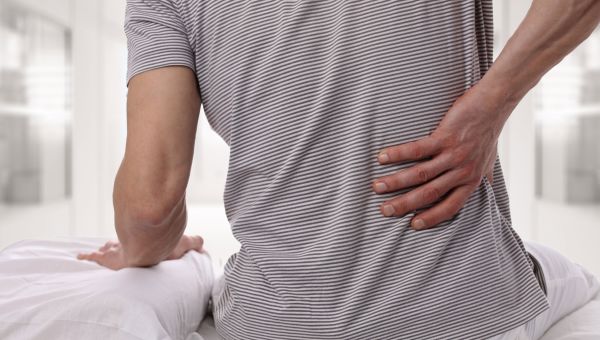
Chronic pain
When your body hurts, sleep can be elusive. In fact, pain is one of the most common causes of insomnia, which affects up to two-thirds of those who live with chronic pain. Besides leaving you exhausted, lack of sleep can further exacerbate chronic pain and can make pain medications less… Show More
When your body hurts, sleep can be elusive. In fact, pain is one of the most common causes of insomnia, which affects up to two-thirds of those who live with chronic pain. Besides leaving you exhausted, lack of sleep can further exacerbate chronic pain and can make pain medications less effective.
There are several ways to lessen the burden of both insomnia and chronic pain. Cognitive behavioral therapy for insomnia (CBT-I) can help control the factors that keep you awake at night, like negative thoughts about your aches and pains. Therapy may include relaxation techniques to practice before bedtime, specific sleep habits to develop, and sleep hygiene to practice. These techniques, in addition to pain treatment prescribed by your HCP, could help decrease the discomfort of both conditions.
Your HCP can help you with treatment for insomnia and chronic pain, so make an appointment to discuss your options.
Show Less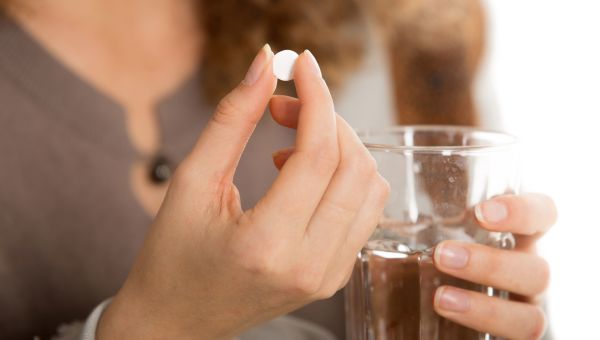
Medications
If you’re having difficulty sleeping, one of your medications may be to blame. Drugs prescribed to treat hypertension, depression, and asthma can leave you sleepless, as well as some non-prescription medications for pain, allergy, and cold symptoms.
Angiotensin-converting enzyme (ACE)… Show More
If you’re having difficulty sleeping, one of your medications may be to blame. Drugs prescribed to treat hypertension, depression, and asthma can leave you sleepless, as well as some non-prescription medications for pain, allergy, and cold symptoms.
Angiotensin-converting enzyme (ACE) inhibitors, prescribed to treat high blood pressure and heart failure, can cause side effects like a tickling and persistent cough and even diarrhea. Diuretics (“water pills”), used to treat a range of conditions, including high blood pressure, can cause leg cramps. All of these symptoms can make it hard to sleep.
Beta-blockers, in particular, which are prescribed to treat high blood pressure and irregular heartbeats, not only make falling asleep more challenging, but they can also cause disruptions throughout the night. Research suggests that beta-blockers disrupt the flow of melatonin, the hormone that helps regulate sleep.
If you suspect your medication could be causing insomnia, speak with your HCP, who may be able to provide you with a different course of treatment or methods to get better sleep.
Show Less
National Heart, Lung, and Blood Institute. What Is Insomnia? Page last updated March 24, 2022.
MedlinePlus. Insomnia. Page accessed September 8, 2024.
Centers for Disease Control and Prevention. Worry and Anxiety. Page last reviewed May 26, 2023.
Zhou F, Li S, Xu H. Insomnia, sleep duration, and risk of anxiety: A two-sample Mendelian randomization study. J Psychiatr Res. 2022 Nov;155:219-225.
Palagini L, Hertenstein E, Riemann D, et al. Sleep, insomnia and mental health. J Sleep Res. 2022 Aug;31(4):e13628.
National Heart, Lung, and Blood Institute. Insomnia: Causes and Risk Factors. Page last updated March 24, 2022.
Mayo Clinic. Generalized Anxiety Disorder. October 13, 2017.
Plante DT. The Evolving Nexus of Sleep and Depression. Am J Psychiatry. 2021 Oct 1;178(10):896-902.
Mayo Clinic. Depression (major depressive disorder). October 14, 2022.
Gardiner C, Weakley J, Burke L, et al. The effect of caffeine on subsequent sleep: A systematic review and meta-analysis. Sleep Medicine Reviews. 2023 June;69:101764.
Zuraikat FM, Wood RA, Barragán R, et al. Sleep and Diet: Mounting Evidence of a Cyclical Relationship. Annu Rev Nutr. 2021 Oct 11;41:309-332.
Cleveland Clinic. How to beat insomnia when you have chronic pain. August 10, 2020.
Mayo Clinic. Insomnia treatment: Cognitive behavioral therapy instead of sleeping pills. April 5, 2023.
Heidi Godman. Are your medications keeping you up at night? Harvard Health Publishing. December 1, 2022.
NHS Inform. Insomnia. Page last updated May 31, 2024.
Garline, Ashley. 10 Common Medications That Can Affect Sleep. AARP. Page last updated June 30, 2023.
More On


video
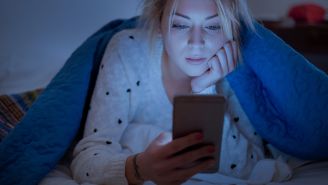
article


video


video


video
